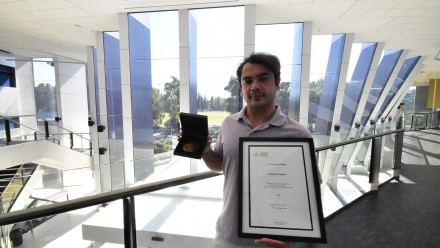The determinants of lineage specific gene expression in the immune system
Professor Stephen Nutt PhD FAA, Laboratory Head, The Walter and Eliza Hall Institute of Medical Research
The differentiation and functional diversification of cells of the immune system is controlled by the interaction of a handful of transcription factors with extrinsic signals, including antigen and cytokines. Our research focuses on understanding how these cell fate decisions are controlled. This approach has enabled us to define a molecular signature that highlights the stark transcriptional divide between B cells and plasma cells, and to demarcate chromatin and global genome organizational changes associated with the differentiation process. We are also applying similar principles to the study of dendritic cell and T cell differentiation. Examples of the insights gained from these approaches will be presented.
Dr Nutt completed his PhD research at the Research Institute of Molecular Pathology, Vienna Austria, where he identified the key role played by Pax5 in B cell biology. In 2001, he moved to the Immunology Division of the Walter and Eliza Hall Institute to establish a research program focusing on lymphocyte differentiation. In 2016, he was elected as a Fellow of the Australian Academy of Science and is a Professor at the University of Melbourne.
Throughout his career Dr Nutt has been intrigued by the regulatory logic used by immune cells in making decision of cell fate and differentiation, and particularly how a select group of transcription factors act as the master regulators to program the immune response. Examples of his research in this area include the findings that PU.1 and IRF proteins are critical for cell fate determination in multiple immune cell lineages and deciphering how factors such as BLIMP-1 and MYB control late T and B cell differentiation.












